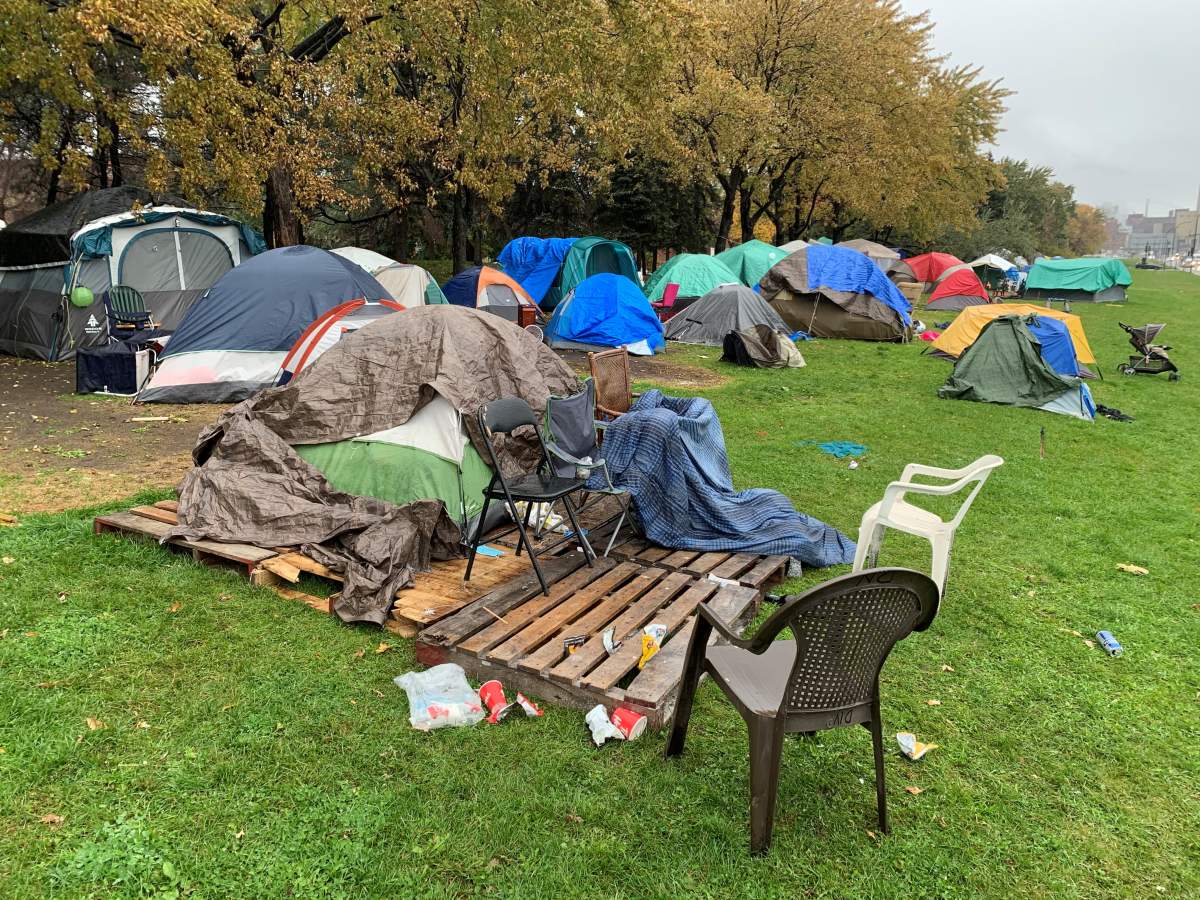Over the next three months, front-line workers will scour the island to meet with potential landlords, secure leases, and find apartments to help homeless Montrealers find a place to call their own in a city hit hard by a housing crunch and the COVID-19 pandemic.

The joint initiative from the Old Brewery and Welcome Hall missions that is supported by the local health authority comes as temporary winter shelters will exceptionally remain open until the end of June to accommodate anyone who needs a place to stay.
In the past year, the ongoing health crisis has put a limit on long-standing homeless establishments’ capacity to take the homeless in due to physical distancing measures and other public health orders aimed at keeping people safe.
“How wonderful would it be if, over the course of the next three months, we could get a couple of hundred of these people actually housed and not have to ever return to a shelter or a tent city or any other place like that again?” said James Hughes, the CEO and president of the Old Brewery Mission.
READ MORE: No place to go or hide: A deeper look into how vulnerable Montreal women are trying to survive
The goal is not only to find and provide a choice of dwellings, but to also create a sense of community and provide a better support system for Montrealers in a tough position.

Get breaking National news
The organizations are working to find landlords who are open to the initiative, since the city’s vacancy rate remains low. Teams will help those without a fixed address get their taxes and other paperwork in order, so they can access more permanent housing, and intervention workers will regularly follow up to see how they are doing after their move.
As part of the initiative, the organizations will be providing housing kits to help clients set up their new home. This includes short-term funding for rent, furniture and food.
“I think this is just more than putting you back in an apartment,” said Sam Watts, CEO of the Welcome Hall Mission, while describing the measures that come after securing a dwelling.
While emergency shelters and homeless organizations are always available to help, this project is a step toward finding a more permanent solution to a chronic problem, according to Watts.
The pandemic has also thrusted an uncomfortable light on the plight of homeless Montrealers, making the ongoing issue much more visible — which will hopefully lead to a more comprehensive approach to addressing the situation, he added.
“This shouldn’t be a system that people circulate in for years,” Watts explained.
“And unfortunately, that’s one of the phenomena that occurs in the homeless community if you just base your services on providing an emergency care network.”
Under the plan, the organizations will be looking for housing across the city in a scattered site approach, since each person has different needs and wants for a home. It’s a crucial step to ensuring a longer-term connection to housing, Hughes said.
“One of the kind of best practices in this area is to try to provide some level of choice and not just tell someone ‘You’ve got to take this apartment,'” Hughes said.
As a result, they are looking for landlords who are open to working with them. Since case workers will be helping, building and apartment owners are more likely to say yes to low-income or vulnerable tenants, he added.
“If you’re willing to take low-income people such as the ones we serve, please let us know,” Hughes said.







Comments
Want to discuss? Please read our Commenting Policy first.